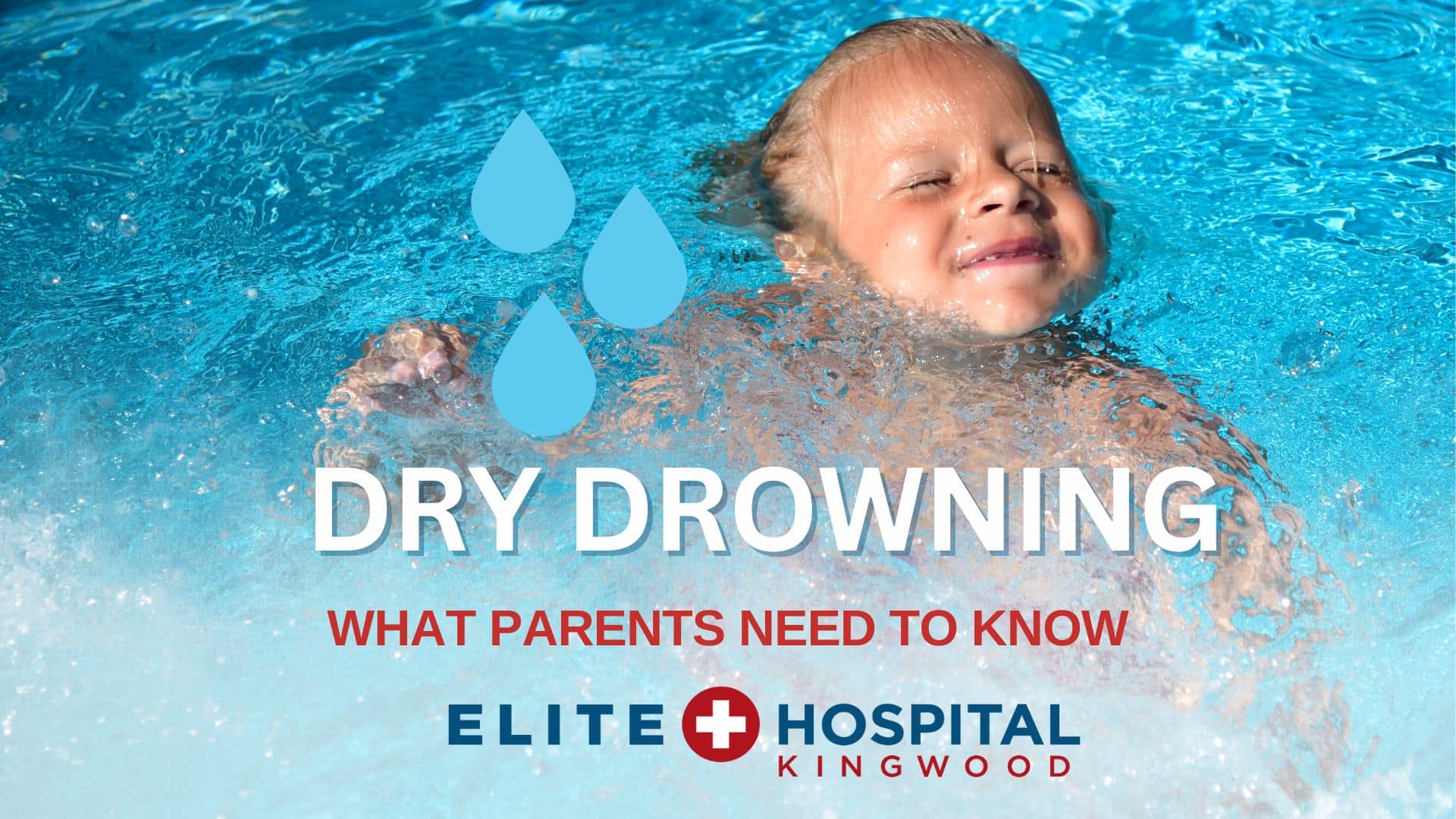
While drowning is a well-known danger, many parents may not be aware of dry drowning—a rare but serious condition that can occur hours after a child has been in the water. Water safety is a priority for Kingwood area parents, especially with the abundance of pools, splash pads, and Lake Houston nearby. Understanding the signs and symptoms of dry drowning, when it becomes a medical emergency, and how to teach children essential swimming safety skills can help protect young swimmers.
What is Dry Drowning?
Dry drowning occurs when water is inhaled into the airway, triggering the vocal cords to spasm and close off. This can make it difficult for a child to breathe and may cause life-threatening complications. Unlike traditional drowning, where water fills the lungs immediately, dry drowning can happen minutes to hours after a child has left the water.
Signs and Symptoms of Dry Drowning
Dry drowning symptoms can develop quickly and should not be ignored. Parents should watch for the following warning signs:
- Persistent Coughing – If your child is coughing repeatedly after swimming, it may indicate that water was inhaled.
- Difficulty Breathing – Labored or rapid breathing, wheezing, or struggling to catch their breath is a serious concern.
- Extreme Fatigue – If a child appears unusually drowsy or lethargic after being in the water, it may be a sign of oxygen deprivation.
- Vomiting – Persistent vomiting could indicate respiratory distress caused by water irritation in the lungs.
- Behavioral Changes – Confusion, irritability, or sudden personality changes could be signs that the brain is not receiving enough oxygen.
When is Dry Drowning a Medical Emergency?
Parents should seek immediate medical care if their child experiences any of the above symptoms after swimming. Dry drowning is a medical emergency that requires prompt treatment by an Emergency Physician.
Elite Hospital Kingwood is open 24/7, 365 days a year—including holidays—to provide immediate emergency care. With onsite labs and radiology, our team can quickly assess your child’s condition and provide the necessary treatment. If your child is struggling to breathe, experiencing a persistent cough, or showing signs of distress, visit our ER immediately or call 911.
Teaching Kids Water Safety
Preventing dry drowning starts with teaching children essential water safety skills. Here are some key lessons every parent should reinforce:
- Never Swim Alone – Children should always swim with an adult present, whether in a backyard pool, community pool, or any body of water.
- Practice Controlled Breathing – Teaching kids how to hold their breath properly and avoid gasping for air underwater can prevent water inhalation.
- Know When to Get Out – If a child swallows water while swimming, encourage them to take a break and rest to monitor for any symptoms.
- Enroll in Swim Lessons – The Lake Houston Family YMCA and local swim schools in Kingwood offer swimming lessons for children of all ages, teaching essential water safety skills.
- Understand Emergency Protocols – Parents and caregivers should be CPR-certified and should know how to respond if a child is struggling in the water.
Local Resources for Water Safety
Families in the Kingwood area have access to several local pools and swim programs that emphasize water safety:
- Lake Houston YMCA – Offers lessons to swimmers of all ages.
- Blue Tide Aquatics – Provides advanced swim training and water safety education.
Stay Safe, Stay Informed
While dry drowning is rare, parents must recognize the symptoms and immediately act when needed. If you suspect your child is experiencing dry drowning symptoms, do not wait—visit Elite Hospital Kingwood for expert emergency care with a Board Certified Emergency Physician. Our full-service-style emergency hospital provides rapid medical attention with no long wait times, ensuring your child receives the care they need when every second counts.
For more information about our emergency services, visit Elite Hospital Kingwood.
Elite Hospital Kingwood
23330 US-59 N, Kingwood, TX 77339
Phone: (832) 777-6165
Works Cited
Mayo Clinic Staff. “Secondary Drowning: How to Recognize and Respond.” Mayo Clinic, 2023, www.mayoclinic.org.
American Red Cross. “Water Safety Tips for Parents.” American Red Cross, 2023, www.redcross.org.
